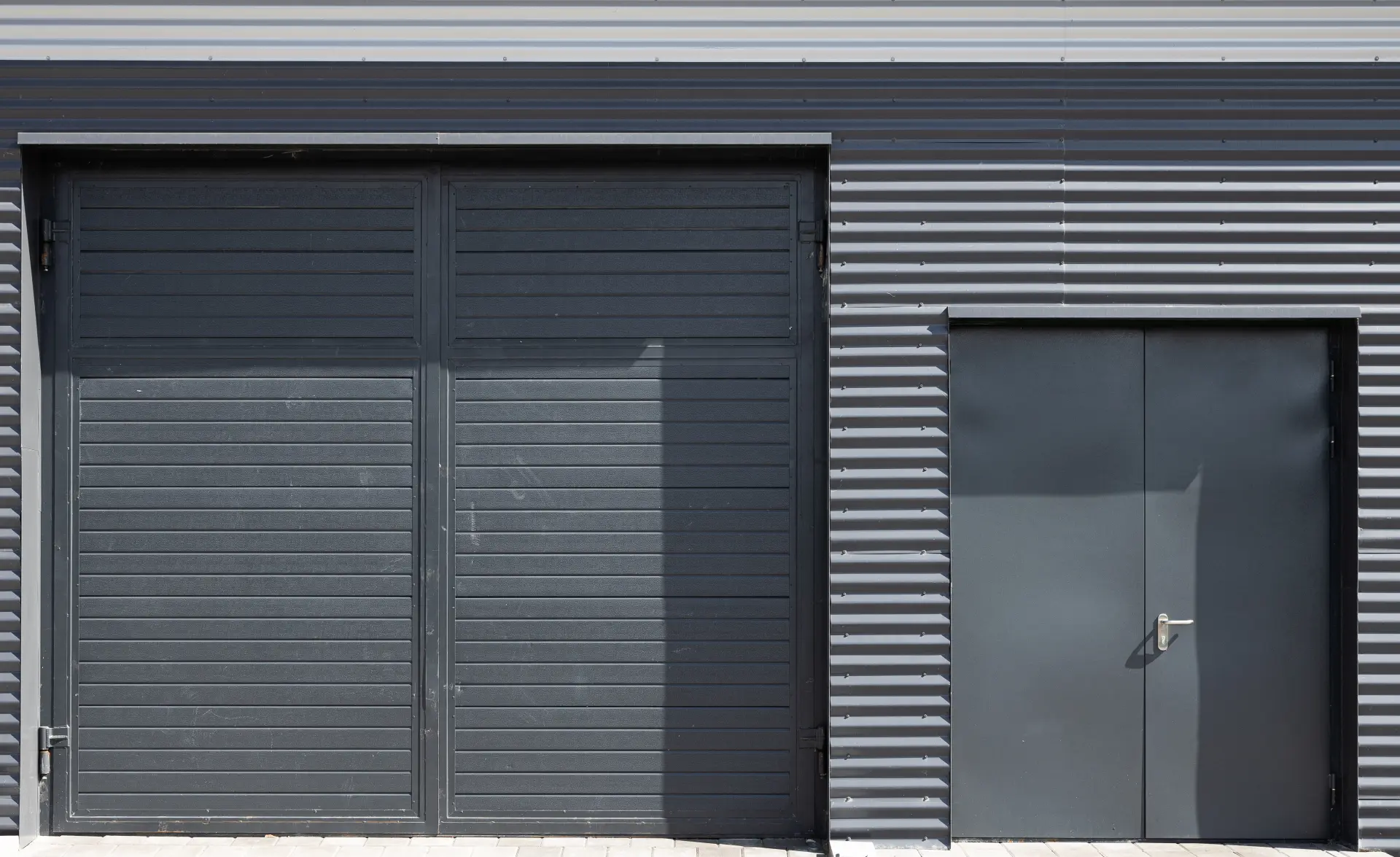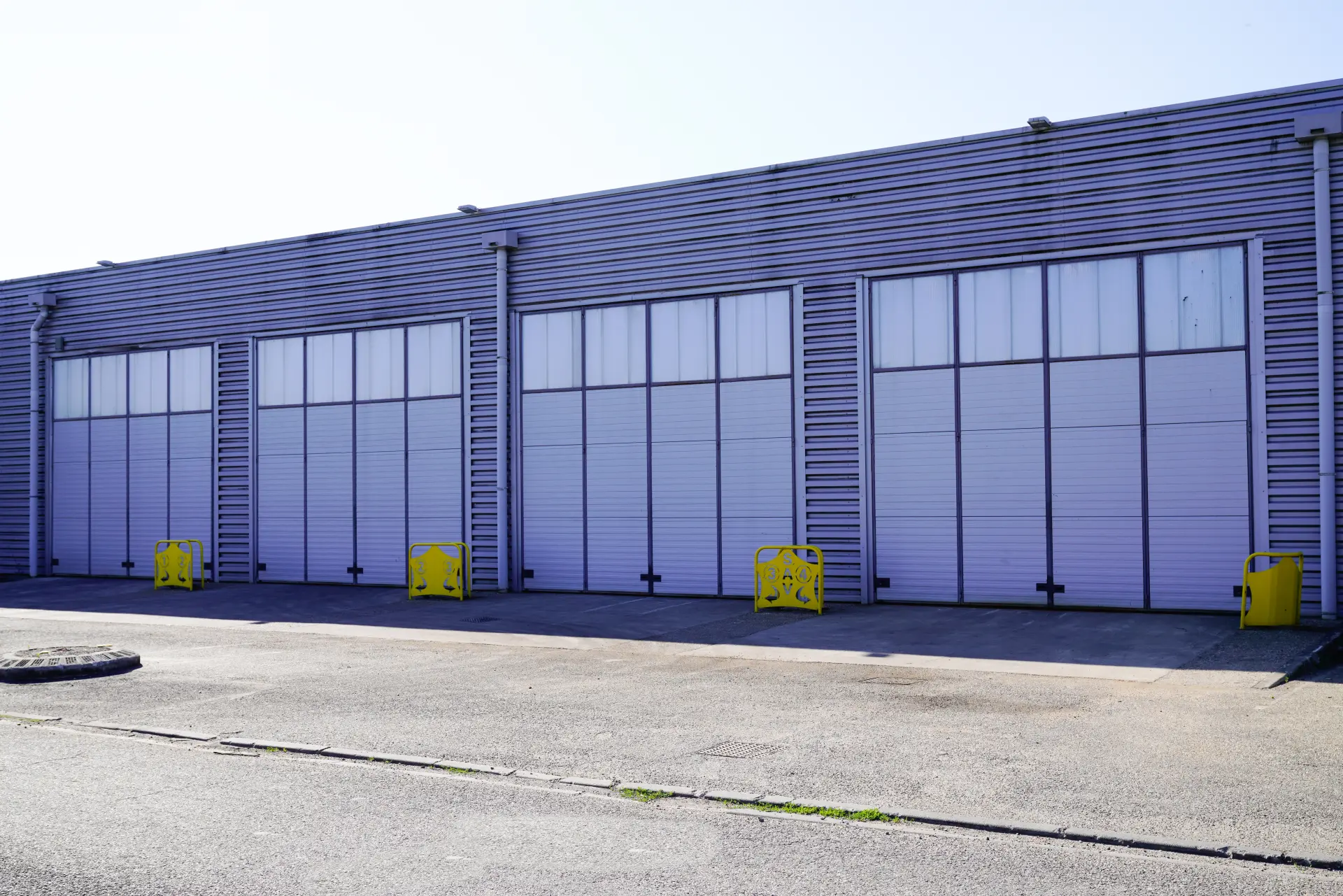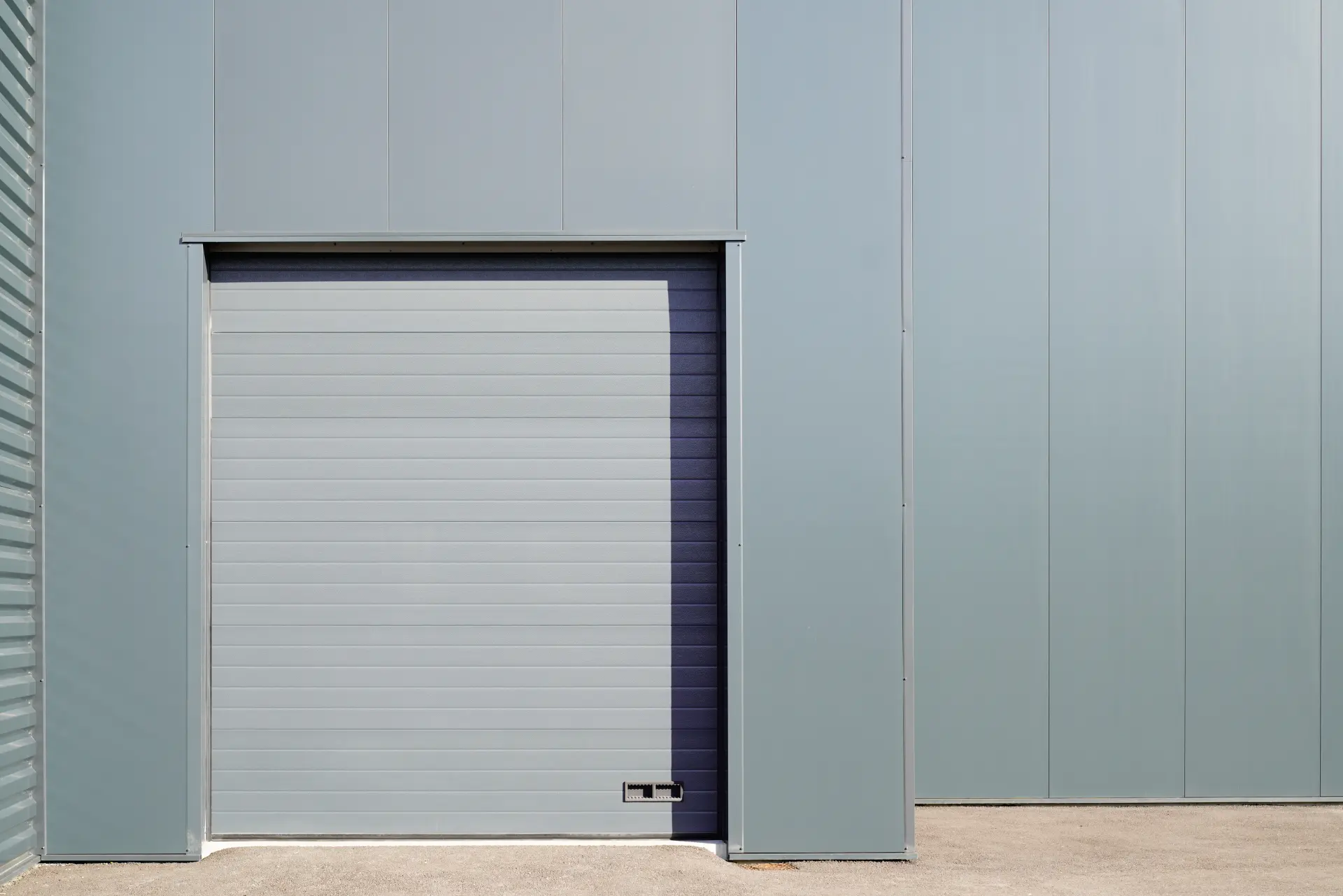Common Industrial Door Repairs are crucial for safety and efficiency. We look at common repairs applied to minimise downtime and keep doors operating smoothly.
Damaged or Worn Rollers
Rollers help industrial doors open and close smoothly. Over time, they can become worn, chipped or cracked due to constant use. This can cause the door to shake, stick, or become noisy when in motion. If the rollers are not replaced quickly, the damage can spread to other parts like the tracks or hinges.
To fix this issue, a technician will inspect all rollers, remove the damaged ones, and install new heavy-duty replacements. Lubrication is usually applied to ensure smoother operation. Regular servicing can help spot roller issues early, reducing the chance of bigger problems.
Broken Door Springs
Door springs are vital for lifting and lowering heavy industrial doors. These springs hold a great deal of tension. When they break, the door may suddenly slam shut, become hard to open, or not move at all. This can be a serious safety risk and often stops the door from working completely.
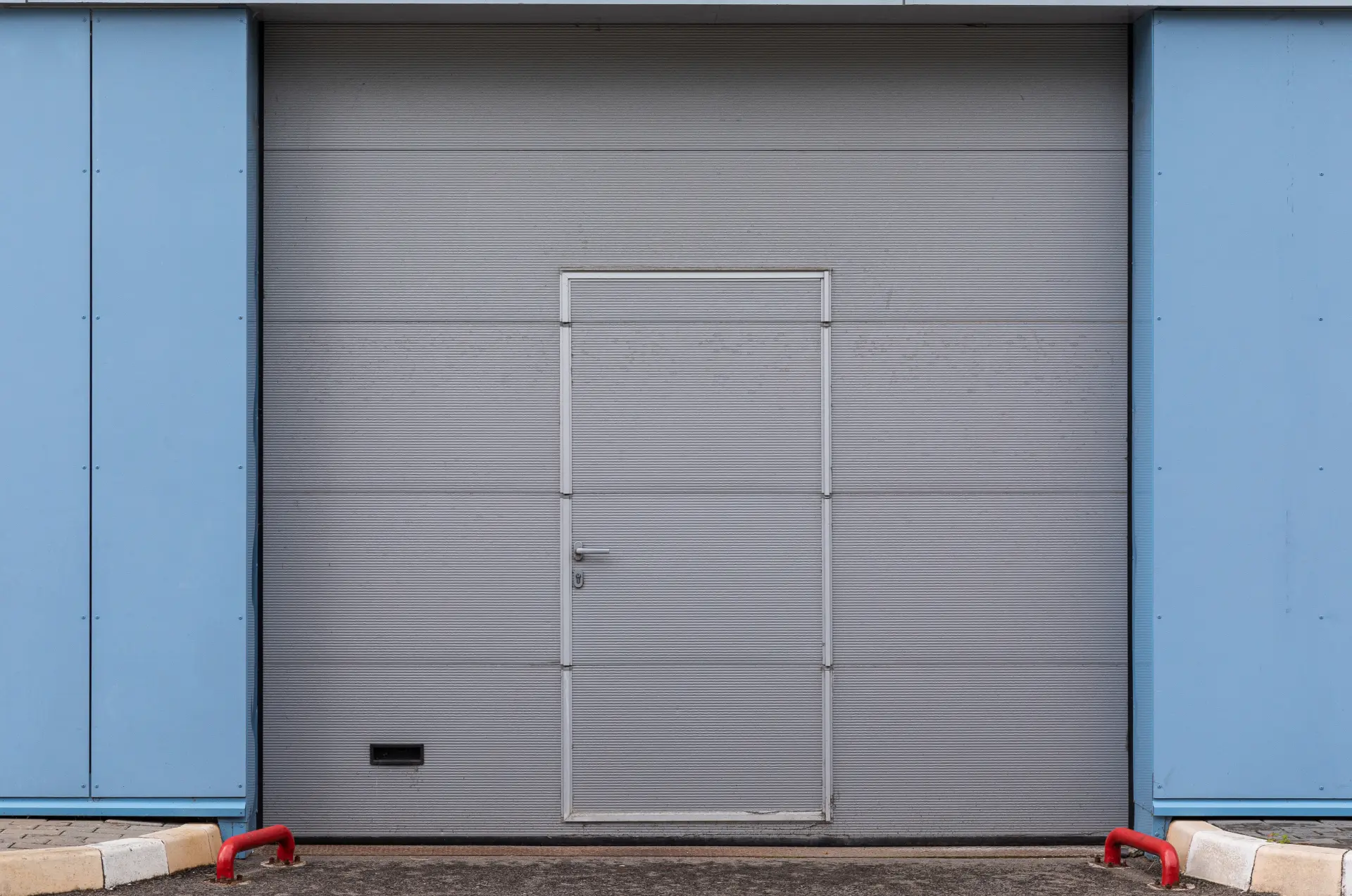
Broken springs are usually caused by wear over time, rust, poor maintenance, or sudden extreme pressure. Fixing a broken spring must be done by a professional.
They will first check which type of spring is used—either torsion or extension. The repair involves safely releasing any remaining tension, removing the broken spring, and fitting a new one of the correct size and strength. After installation, the technician tests the door’s balance and operation.
Regular maintenance, including lubrication and tension checks, can help extend the life of the springs and prevent sudden breakages.
Misaligned Tracks
Tracks guide the door as it moves up and down. If these tracks become bent, loose, or misaligned, the door may jam, rub against the frame, or fall off the track altogether.
This is usually caused by accidental impacts, poor installation, or wear and tear. Fixing the problem involves realigning or replacing the tracks. Technicians use tools to straighten the metal, tighten fittings, and ensure both sides are aligned properly. The door is then tested for smooth operation.
Faulty Motors or Openers
Most industrial doors use electric motors or openers to raise and lower the door automatically. If the motor or opener fails, the door may stop responding, move slowly, or make strange noises. Common causes include power supply problems, worn-out gears, damaged wiring, or control unit faults.
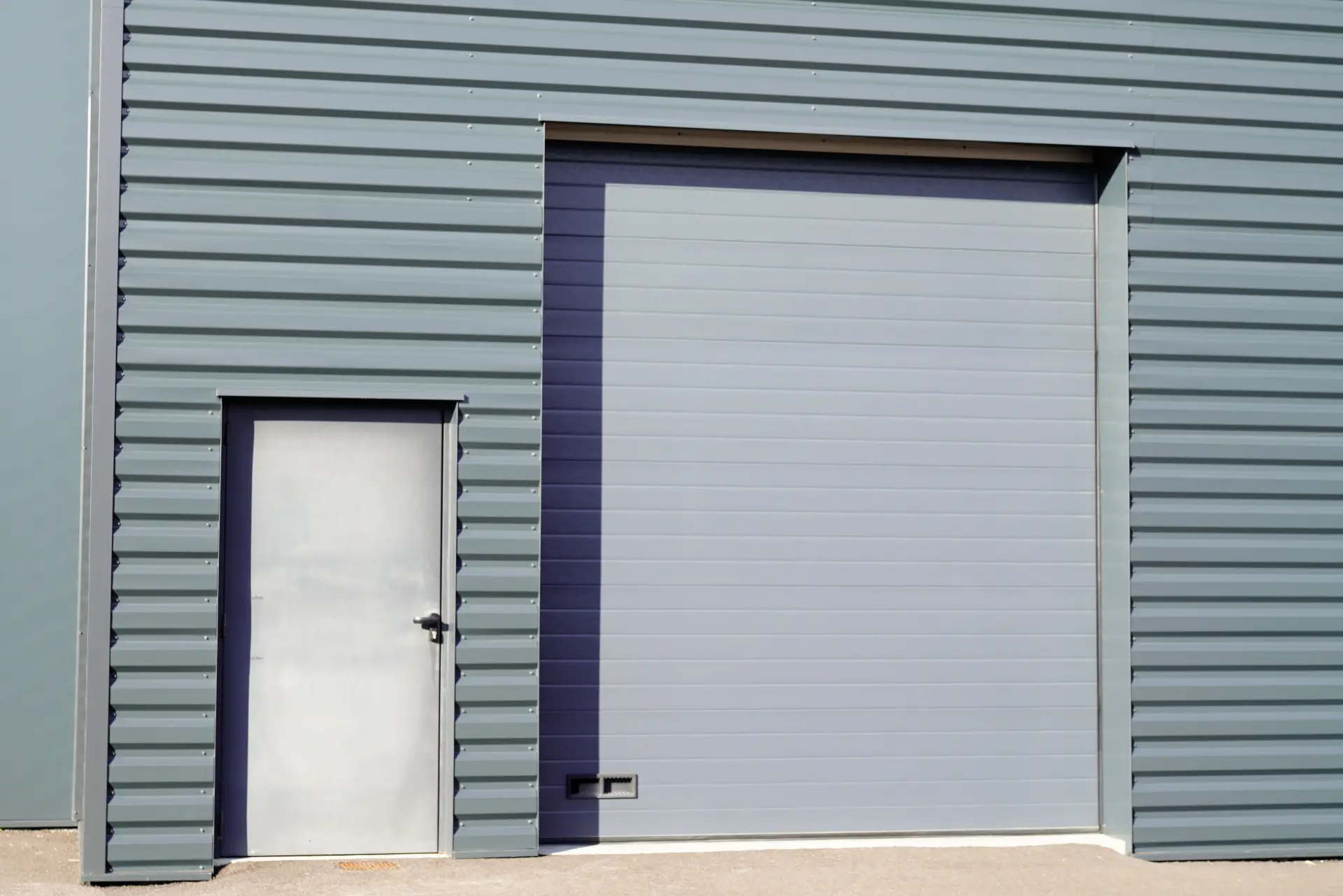
To fix this, an electrician or specialist will first inspect the power source and control switches. They’ll check for loose wires, blown fuses, and any signs of electrical damage.
The motor may be removed and tested separately. In many cases, worn-out components inside the opener—like limit switches, belts or circuit boards—are replaced. If the motor is beyond repair, a replacement unit is installed.
Upgrades may also be suggested if the system is outdated or underpowered. Regular servicing, including testing safety sensors and backup systems, ensures long-term reliability.
Snapped or Frayed Cables
Cables help carry the weight of the door during opening and closing. If they become frayed or snap, the door could fall or become stuck in one position. This is a major safety risk.
These problems are often caused by corrosion, poor alignment, or old age. Repairs involve replacing the cable with a new one that matches the door's size and type. The technician also checks the pulleys and tension system to make sure everything works correctly. Replacing worn cables early can prevent costly damage and accidents.
KGC Doors specialises in the supply, installation, and maintenance of high-quality industrial doors for businesses across Wolverhampton, Birmingham, Derby and the Midlands. We have years of experience and can provide secure, durable, and energy-efficient doors tailored to your business.

